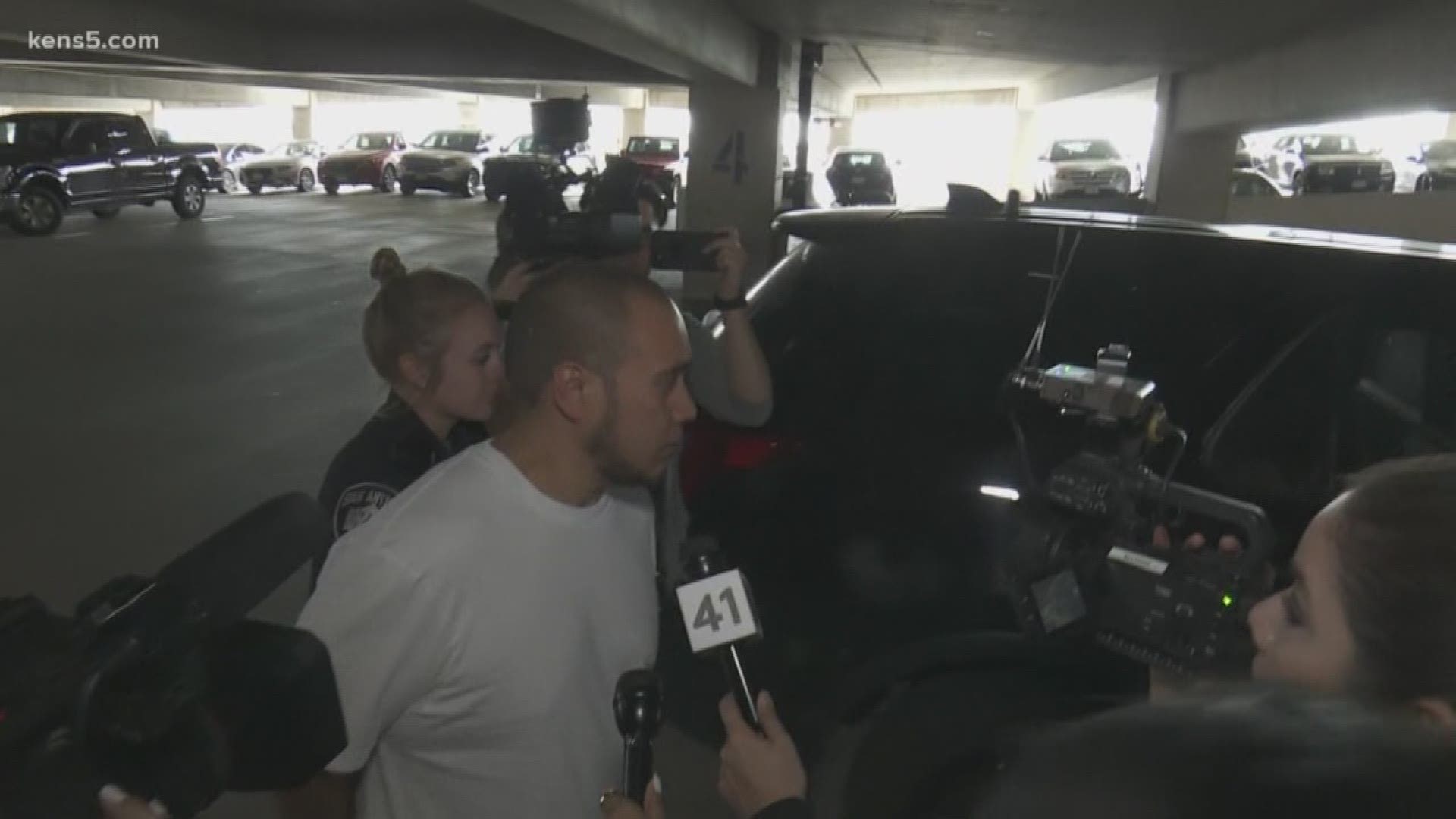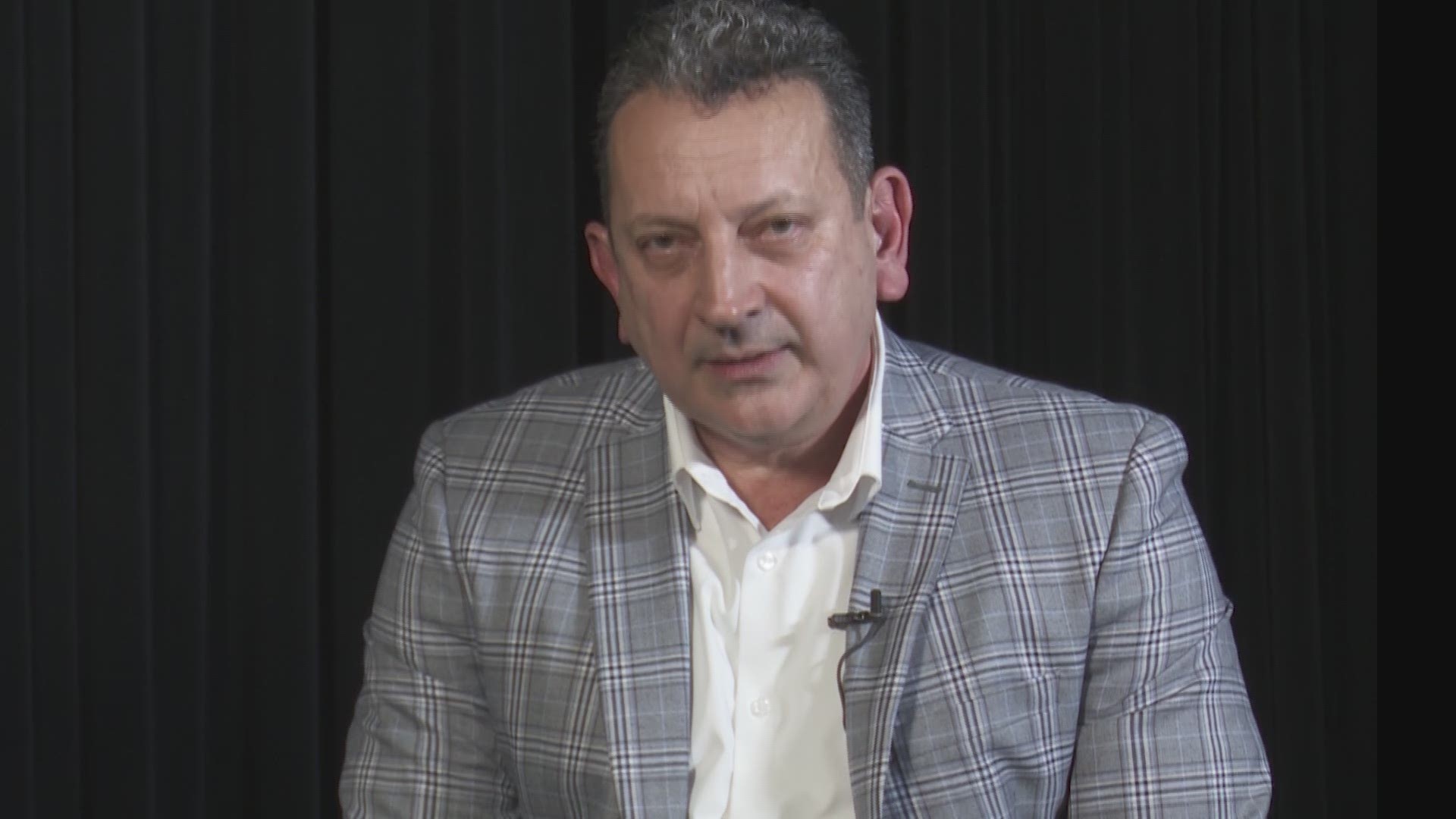SAN ANTONIO — Days into the month of January, which is known as human trafficking Awareness month, San Antonio Police arrested a man suspected of trafficking his now ex-wife.
Police said Jose Sanchez Davila, 39, intimidated his then-wife into silence for years.
"The thing that makes this so difficult for victims who are being trafficked, specifically, in this case, the husband threatened her in a variety of ways, which made her fearful—fearful enough not to even leave that situation," San Antonio Police Chief William McManus said following Davila's arrest. "So, (it's) very difficult sometimes for victims to leave the situation that they're in, that may otherwise seem to someone who doesn't realize, like, 'Why didn't they just leave?' Because a lot of the time, it's not that easy."
Jose Trevino and Harry Jimenez have more than six decades of law enforcement experience combined. Jimenez most recently served as a Deputy Chief Criminal Investigator for the Bexar County District Attorney's Office. Trevino worked for the Bexar County Sheriff's Office for more than two decades and is running for sheriff.
They said what Davila's wife told police is something they see far too often in the human trafficking cases they've investigated.
"It's all about control," Jimenez said. “These individuals are going to control the lives of their victims of human trafficking. They’re never going to be able to talk to someone—by fear, by fraud or by coercion.”
The pair remain active in educating people about the the red flags of human trafficking.
"They get into a cycle where the victim cannot identify themselves as a victim," Jimenez explained. "The victim cannot seek help. Some people say, 'Well, they can call the cops.' Some of the victims have been lured into doing drugs."
Jimenez rattled off excuses that traffickers frequently give their victims: "'They're going to help you through the pain, they're going to help you through – we need the money, you're going to be doing this anyway – here's some drugs.'
"Now you're a criminal, so you're not going to the cops."
A victim's apprehension to come forward is why they said law enforcement relies in part on tips from the public. Trevino said it's something that doesn't happen as often as some may think.
NATIONAL HUMAN TRAFFICKING HOTLINE: 1-888-3737-888
“You’ll talk to (witnesses) later and they’ll say ‘Well I noticed all the traffic or I noticed she would never come out, or he would never come out, the child- - but they never say anything,” Trevino said.
But Trevino said in the one case he will never forget, a concerned citizen made a world of difference for a victim.
RELATED: 'It puts a sick feeling in my stomach'| Man accused of attempting to kidnap 8-year-old girl
"He was a client for drugs, and he saw her, he recognized her, he knew who she was and he couldn't do it, and it was because of him that they were turned in," Trevino said. "The offenders were turned in and she was saved from that horrific behavior."
Both are examples of why they believe the public should be educated about the signs.
“They’re hiding in plain sight," Jimenez said. "Nobody would have thought it would happen here. But it happens. It happens in your backyard. That’s why we need the community to be aware.”
They provided the following red flags, while on their own may not be concerning but taken together, should be reported:
Child sex trafficking
- Changes in school attendance, habits, friend groups, vocabulary, demeanor, and attitude
- Sudden appearance of luxury items — e.g., manicures, designer clothes, purses
- Truancy
- Sexually provocative clothing
- Tattoos or branding
- Refillable gift cards
- Multiple phones or social media accounts
- Lying about the existence of social media accounts
- Provocative pictures posted online or stored on the phone
- Unexplained injuries
- Social interaction and schedule being strictly controlled by someone else
- Isolation from family, friends, and community
Adult sex trafficking
- Contents of the vehicle/location
- Hotel receipts
- Drug-store receipts
- Lingerie
- Condoms
- Female personal hygiene items in a place of business
- High-end clothing recently purchased
- Hotel keys
- Rolls of money
- Prepaid credit cards
- Tattooing/branding
- Lack of eye contact
- Bruises, swelling, and/or redness
- Third-party control of the person’s schedule, identifying documents, money, and/or travel
- Sex ads linked to the individual’s phone number
Labor trafficking
- Third-party control of schedule and social interaction
- Evidence of violence: bruises, swelling, scarring, etc.
- Works excessively long or unusual hours
- Living where the individual works
- Living in an area that is not zoned for residential
- Transported to and from work by employer
- Housing, food, and hygiene products all being supplied by the employer
- Not being paid on a regular schedule
- Recruited through false promises related to citizenship or working conditions
- Inability to speak English
- Identification documents or money are being held by a third-party
- Malnutrition, dehydration, exhaustion
- Untreated disease or dental and/or vision problems
- Chronic pain — e.g., back pain, muscle strains, respiratory issues, etc.
Illicit massage parlors/spas
- Permit or license for something other than actual business
- Male clientele
- Location may have a guarded entrance
- Open at unusual hours compared to the businesses on either side
- Cameras both inside and outside
- Location storefront may be curtained off/blocked, etc.
- Location may be locked and opened only when someone is at the door with a phone
- “Employees” may be ferried to and from work by the “spa” or may live at the location
- Men walking through the parking lot, seem to be confused, and/or talking on their cell phones
- Condoms in the parking lot, drains or pipes
The Attorney General of Texas' "Be the One" campaign advises people to pay attention to the red flags and report them in a timely manner. The agency states that witnesses should not approach traffickers themselves because they could be placing themselves in danger and any future prosecution in danger. Officials advise witnesses to call 911 if they believe what they're seeing is an emergency, and to not to worry about being wrong.
The state also asks witnesses to collect "actionable information" that could help investigators:
- Description of cars
- Description of people
- When and where you saw the conduct
- Take a picture if you can safely do so


